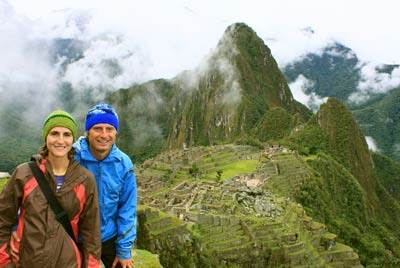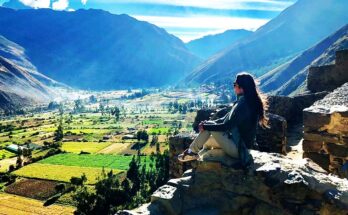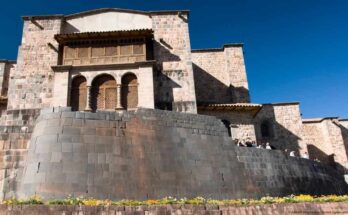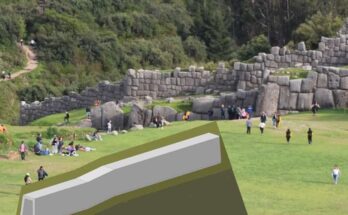Dear traveler, safety is never out of date. These tips are for those women traveling alone but are applicable, in deed, to all. Some tips are those that we have gathered over the years, some from friends, some from our own personal experience. Hopefully that you will find them interesting and helpful. All safety start basically using common sense. Don’t do anything that you would not do at home: don’t accept a ride from a stranger or go into strange neighborhoods alone after dark, do not flash a lot of money, or wear a lot of jewelry. Don’t ever leave your valuables lying around.
BOUT HOTEL ROOMS Try to not accept a room on the first floor. Once in your room, immediately check all windows and doors for proper locking mechanisms. Upon re-entering your room, each and every time, check the sliding doors again, as the cleaning staff may sometimes open the doors for some reason and forget to lock them. It is also not a bad idea to check under the bed and in the closets and shower stall, when you come back to your room, sounds a little paranoic but better safe than sorry! As soon as you enter your room, walk down the hallway and count the number of doorways to the exit. Do this on an airplane as well–it just might save your life. If you feel uneasy about a person in the lobby watching you get into the elevator, press a number of different buttons, so that they do not know where you got off. It is always a good idea to let men think that you are not traveling alone, that you do have someone sharing your room. You might also want to wear cheap wedding bands so that you look like you are married and probably will be hassled less. If something doesn’t feel right to you, or you have a gut feeling, do not hesitate to call hotel security. That is what they are there for! Always park your car in a well lit area. If you don’t feel right about walking in the lot/garage at night, go to the front and ask security to meet you at your car. Never leave anything in the car that might invite theft…always put your things into the trunk, or even take your valuables into your room with you. We hope that some of these ideas have been helpful to you, safe traveling and happy holidays!
SOME EXTRA TIPS

Take with you just the money you will need for your expected daily expenses. It is advisable to carry an ID with you at all times. Do not leave Lima without your passport, always keep a copy of your passport which may be useful in case of loss. Should this happen, contact your consulate. Do not wear any jewerly when sightseeing or on tour. When outside the hotel, always keep a watchfull eye on your belongings, such as cameras, video equipment, walkmans, etc. Keep your money and valuables at the hotel safe. Always agree beforehand with drivers, guides and anybody providing services, the cost of taxis, food and / or tours. Do not eat food or drink bevarages which are not packed / canned or bottled.
CHANGING MONEY
TRAVELER’S CHECK “casas de cambio” cash with comision fees of about 2% to 7%, be aware, ask first.
Did your loose your passport? Please do as follows:. Go to any Banco de la Nacion branch and buy a “especie valorada por perdida de documentos” the fee is some S/. 15.00
Go to the district police station or “comisaria” where you lost the passport with the “especie valorada” bought in the Banco de la Nación and file a complaint, or either to the main Touristic Police Headquarters located in Jirón Moore N° 268 – Magdalena del Mar, Lima. E-Mail: dirtupramb.ceopol@pnp.gob.pe
Approach to your Consulate with any personal document and / or the copy of your passport and 2 small photos and the copy of the Police report.
Never forget
Stay away from troubles or persons driving into one. Political demonstrations and labor-related strikes and marches regularly occur in urban and some rural areas and sometimes affect major highways. They can also cause serious disruptions to road, air, and rail transportation. Demonstrations are often – but not always – announced in advance. While these activities are usually peaceful, they can escalate into violent confrontations. As a general rule, it is best to avoid large crowds and demonstrations. Visitors are encouraged to keep informed by following the local news and consulting hotel personnel and tour guides.
Criminal penalties
While you are traveling in Peru, you are subject to its laws. Foreign laws and legal systems can be vastly different than yours own. In some countries you may be taken in for questioning if you don’t have your passport with you. In some places, it is illegal to take pictures of certain buildings. There are also some things that might be legal in the country you visit, but still illegal in your country, and you can be prosecuted under Peru law if you buy pirated goods. Engaging in sexual conduct with children or using or disseminating child pornography in a foreign country is a crime prosecutable in Peru, your foreign passport won’t help you avoid arrest or prosecution. It’s very important to know what’s legal and what’s not wherever you go. Based on the Vienna Convention on Consular Relations, bilateral agreements with certain countries, and customary international law, if you are arrested in Peru, you have the option to request that the police, prison officials, or other authorities alert your nearest embassy or consulate of your arrest, and to have communications from you forwarded to the nearest embassy or consulate.
Special circumstances
The government of Peru prohibits the exportation of archaeological artifacts, colonial art and some natural artifacts such as fossils. These restrictions include archaeological material from the pre-Hispanic cultures and certain ethnological materials from the colonial period of Peru, which are considered protected Peruvian cultural patrimony. Travelers buying art should be aware that unscrupulous traders might try to sell them articles that cannot be exported from Peru. Peruvian customs authorities may seize such articles, and the traveler may be subject to criminal penalties. Visitors who purchase reproductions of colonial or pre-colonial art should buy only from reputable dealers, and they should insist on documentation from Peru’s National Institute of Culture (INC) showing that the object is a reproduction and may be exported. Peruvian customs authorities may retain articles lacking such documentation and forward them to INC for evaluation. If found to be reproductions, the objects eventually may be returned to the purchaser, but storage and shipping charges are the responsibility of the purchaser. Vendors in jungle cities and airports sell live animals and birds, as well as handicrafts made from insects, feathers, or other natural products. Under Peruvian law, it is illegal to remove certain flora and fauna items from their place of origin to another part of Peru or to export them to a foreign country. Travelers have been detained and arrested by the Ecology Police in Lima for carrying such items. Travelers should be aware that some drugs and other products readily available over the counter or by prescription in Peru are illegal in the United States. The prescription sedative flumitrapezan (Rohypnol) is one such drug; others may come on the market at any time. Although coca-leaf tea is a popular beverage and folk remedy for altitude sickness in Peru, possession of these tea bags, which are sold in most Peruvian supermarkets, is illegal in the United States.
Disaster preparedness
Peru is an earthquake-prone country. Foreign citizens in areas affected by earthquakes can expect to experience temporary difficulty communicating with family and friends and in securing prompt onward overland transportation out of the affected areas.
Policia de Turismo
Jirón Moore N° 268 – Magdalena del Mar, Lima. E-Mail: dirtupramb.ceopol@pnp.gob.pe
Banco de la Nación
Avenida Pardo y Mártir Olaya N° 211 Miraflores – Lima



